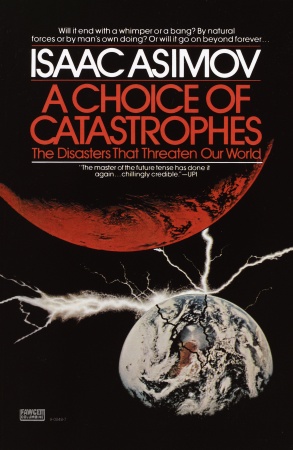
So as previously mentioned, I'm reading again and have chosen a book.
It would be more accurate to say that it chose me. I was still mulling over my options when I reached a time a few days ago where I had 15 minutes to kill. I happened to be standing in front of my bookshelf when I reached out and grabbed the first thing I touched. I'm now 1/4 through it and am not disappointed in my selection.
I knew I wouldn't be, of course. I've read this book twice before. In fact it has a bit of a history.
I first read it years ago right after high school. I wasn't particularly proud of my grades at the time, and thought I could do better. Between being busy with my classes, I visited the library at what used to be called Viscount Bennett, where in Calgary adult upgrading was performed. (I retook Math 30 and English 30, and fared much better)
I found this book on the shelf and was very interested. I had to return the book once I was no longer a student, and was sad because I had enjoyed it, and didn't expect to see it again.
Years later, my lovely Jenn found it for me online where I purchased it fairly cheaply, used but in good condition. I read it again at that time.
The book itself is somewhat dark. It deals with the very real probability that life, Earth, and the universe in itself is a temporary construct. Whether it is the expansion of the Sun, a disaster that befalls the entire planet, or the heat death of the entire universe, the odds are highly in favor that life as we know it will not continue indefinitely.
It is very well written and extremely thoroughly thought out, as was most of Asimov's work. It touches briefly on various religious predictions of the end times, (Ragnarok, Revelations, etc.) and then dives into a thorough classification and exploration of the things that could render human life unrecognizable or nonexistent.
He divides this into several types of catastrophes, and each is given detailed examples. Catastrophes of the first class would render the entire universe uninhabitable, and obviously as residents of such a place we would be among those out of luck. Anything that damages or substantially changes the solar system we inhabit (including the Sun) would constitute a second class catastrophe. The third class deals exclusively with the destruction of the Earth, while the other planets and the sun continue obliviously. The fourth defines situations where the Earth itself as a whole is largely unaffected, though human life in particular is extinguished, and the fifth class deals with the possibility that although humans may continue to exist, society and technology themselves may become so damaged that 'life as we know it' ceases.
It's not a 'scary book' in the sense that it is not frightening. The concepts are certainly not cheerful, but the tone of the book is clinical, with a bit of quiet optimism and acceptance.
My book is showing it's age, both in appearance and content. The science is slightly dated, and more recent scientific findings are not taken into account, but that is of little consequence.
I have always loved this book for the perspective that it offers: My life, the lives of everyone around me, and even the ground I stand on, are temporary. Nothing lasts forever, and that is literally true. Time will erase my most terrible mistakes and my greatest successes. That doesn't free me from the responsibility to do what I think is necessary or right, but it gives me a vague sense that no matter what happens, it all works out the same in the end.
You may not find that liberating, but I do.
-iRob
"Anything that is created must sooner or later die."
-Chogyam Trungpa